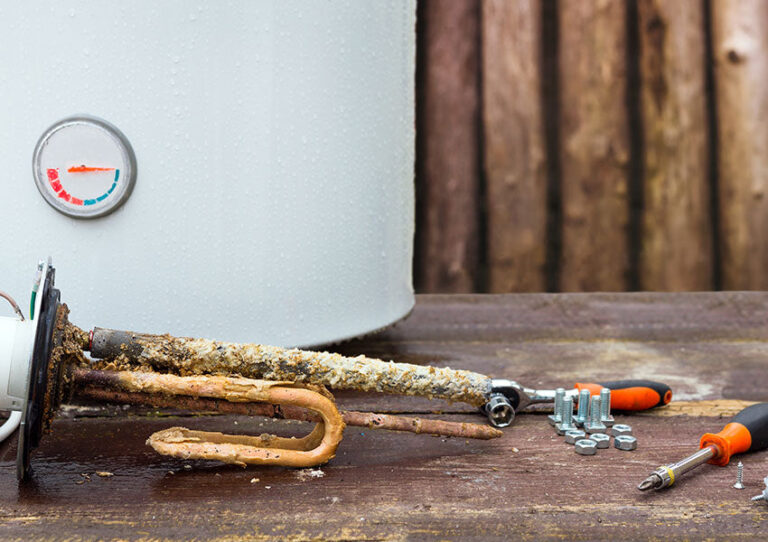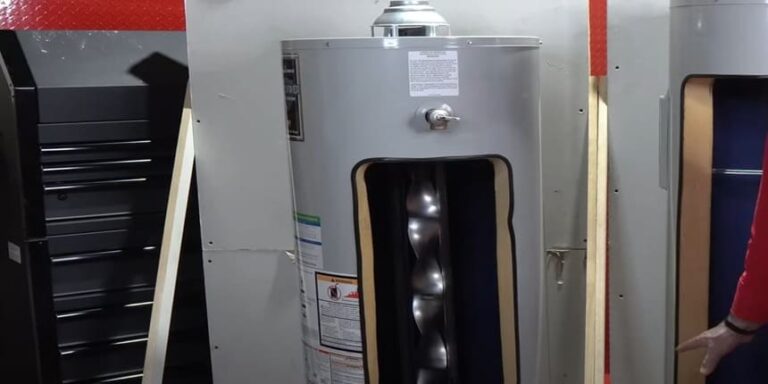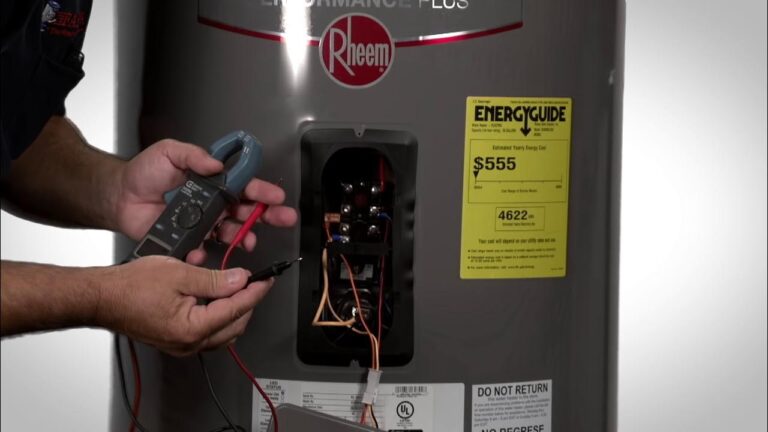Picture this: you’ve just arrived at your favorite campsite, ready to kick back and enjoy the great outdoors with all the comforts of your Forest River RV. But when you try to take a warm shower or do the dishes, you discover your water heater isn’t working.
Frustration bubbles up as fast as the cold water from your tap. How can you fix this before it puts a damper on your adventure? Don’t worry—you’re not alone in this chilly predicament. Many RV owners face similar hiccups with their water heaters.
You’ll find clear, step-by-step solutions to get your Forest River water heater back up and running. Imagine feeling the warmth of a hot shower soothing your camping-weary muscles once again. Ready to turn cold water woes into warm water bliss? Keep reading to discover how you can troubleshoot and resolve this issue swiftly and efficiently.

Credit: www.reddit.com
Common Issues
Forest River water heaters are essential for comfortable living on the road. These heaters provide hot water for showers, dishes, and other daily tasks. But sometimes, they may not work as expected, causing inconvenience. Understanding common issues can help diagnose problems quickly. Addressing these problems ensures a smooth camping experience.
1. Pilot Light Problems
Pilot light issues often stop the heater from working. Dirt or debris might block the light. Check if the pilot light is lit. If it’s out, clean the area around it. Relight it and observe. If it still doesn’t stay lit, the thermocouple may need a replacement.
2. Thermostat Malfunctions
A malfunctioning thermostat can cause inconsistent water temperature. Check the thermostat’s settings first. Sometimes, it might need a simple reset. If the problem continues, the thermostat might be faulty. Consider replacing it to restore normal function.
3. Faulty Heating Element
The heating element is crucial for hot water production. If it’s damaged, the water remains cold. Inspect the element for signs of wear. Replace it if necessary. Regular checks prevent unexpected failures.
4. Sediment Build-up
Sediment can accumulate in the tank over time. This reduces efficiency. Drain the tank regularly to clear sediment. This simple task enhances heater performance. It also extends the heater’s lifespan.
5. Gas Supply Issues
A disrupted gas supply stops the heater from functioning. Ensure the gas valve is open. Inspect the supply line for leaks. Fix any leaks immediately to prevent danger. Regularly check the gas lines to ensure safety.
Checking Power Supply
Experiencing issues with your Forest River water heater? Start by checking the power supply. A faulty power source can often be the reason for a water heater malfunction. Ensuring a stable power connection is crucial for the heater’s performance. Let’s dive into the steps for verifying the power supply.
Circuit Breaker
The circuit breaker is your first stop. Locate the breaker panel in your RV. Check if the breaker labeled for the water heater is tripped. If tripped, flip it back to the “On” position. A tripped breaker often indicates an overload or short circuit. Resetting it might restore power to the water heater.
Fuses And Connections
Inspect the fuses related to the water heater. Fuses can blow due to power surges. Find the fuse box in your RV and replace any blown fuses. Ensure all electrical connections are tight and secure. Loose wires might prevent the heater from receiving power. Tighten any connections to ensure a steady power flow.
Inspecting Thermostat Settings
Experiencing issues with your Forest River water heater? Inspecting the thermostat settings might help. The thermostat is key in maintaining the desired water temperature. A malfunction can lead to your heater not working efficiently. Proper inspection can resolve many heating issues.
Temperature Adjustment
Check the thermostat settings first. Make sure the temperature is set properly. Incorrect settings can prevent the water from heating adequately. Adjust the temperature to your preferred level. Ensure it’s not set too low. This simple check can often resolve heating issues.
Resetting The Thermostat
Sometimes, the thermostat might need a reset. Locate the reset button on the device. Press it to restart the thermostat’s functionality. This can clear minor glitches affecting its performance. A reset can refresh the system, helping it operate correctly. Always follow the manufacturer’s instructions when resetting.
Examining Heating Elements
Experiencing issues with your Forest River water heater? Check the heating elements. Often, faulty elements cause the heater to stop working. Inspect and replace if needed to restore functionality.
When your Forest River water heater stops working, examining the heating elements is crucial. These elements are the heart of your water heater. They warm the water, making your shower comfortable. If they fail, your water heater loses its ability to function. Before diving into the technical aspects, ensure safety first. Turn off the power supply to the water heater. This prevents any electrical hazards during your inspection. Once you’ve secured the area, you can begin your examination.
Testing For Continuity
Testing for continuity helps identify a broken heating element. Use a multimeter for this test. Set it to the lowest ohm setting. Disconnect the wires from the heating element. Place the multimeter probes on the element terminals. A reading of zero or infinity indicates a faulty element. A functional element shows a reading of around 10-16 ohms.
Replacing Faulty Elements
Replacing faulty elements restores your water heater’s efficiency. First, ensure the water heater is off and drained. Remove the faulty element using a socket wrench. Install the new element securely. Tighten it to prevent leaks. Reconnect the wires and restore power. Finally, test the water heater for proper operation.
Evaluating Gas Supply
When your Forest River water heater isn’t working, it can be quite frustrating, especially if you’re relying on it for a warm shower after a long day of adventure. One critical area to check is the gas supply. A hiccup here can be the root cause of your heater’s malfunction. Let’s dive into assessing the gas supply, focusing on propane levels and the ignition system.
Propane Levels
First things first, ensure that your propane tank has sufficient fuel. It’s easy to overlook this simple detail, but an empty or low tank can halt your water heater’s operation. Check the gauge on your propane tank. If the needle is nearing empty, it’s time for a refill.
Consider keeping a spare propane tank on hand, especially if you’re traveling to remote areas where refills might not be readily available. A friend once shared how they ran out of propane miles away from the nearest refill station. It was a chilly night, and they learned the hard way to always have a backup.
Also, inspect the connections between the propane tank and your water heater. A loose or damaged connection can result in an insufficient gas supply. Tighten any loose fittings and replace damaged hoses to ensure a steady flow of propane.
Ignition System
Once you’re sure the propane levels are adequate, shift your focus to the ignition system. This is the part that lights the propane to heat your water. If this system is malfunctioning, your water heater won’t ignite.
Start by checking the igniter switch. Is it clicking when you try to turn on the heater? If not, it might be faulty. Clean the igniter and ensure it’s free from debris or corrosion, which can impede its function.
If cleaning doesn’t work, consider the condition of the ignition electrode. A worn-out electrode can’t produce the spark needed to ignite the propane. Replacing it might be necessary. Have you ever thought about how a tiny spark can make such a big difference in your comfort?
Addressing these common issues with propane levels and the ignition system can often resolve your water heater woes. Keep these checks in your troubleshooting toolkit for a smoother, warmer experience on your travels.

Credit: blog.campingworld.com
Assessing Water Lines
Experiencing issues with your Forest River water heater? Checking water lines can reveal blockages or leaks causing malfunctions. Proper assessment of connections ensures efficient water flow for optimal heater performance. Regular maintenance can help prevent unexpected disruptions in hot water availability.
When your Forest River water heater isn’t working, it can be frustrating, especially when you’re in need of a hot shower. One crucial step in troubleshooting is assessing the water lines. Understanding how to check these components can save you time and potentially spare you from unnecessary expenses. Knowing what to look for can be the key to resolving the issue swiftly.
Checking For Blockages
Blockages can disrupt the flow of water to your heater, causing it not to work properly. Start by inspecting the lines for any obvious obstructions. Are there kinks in the hose or debris caught in the lines? A simple visual inspection can reveal a lot. Sometimes, mineral buildup can clog the lines. You might notice this if your water pressure has been gradually decreasing. Regularly flushing the system with vinegar can help dissolve these minerals and keep the lines clear.
Inspecting Valves
Valves play a critical role in regulating water flow. Ensure that all valves leading to and from the water heater are fully open. A partially closed valve can restrict water flow, causing heating issues. Listen for any unusual noises, like whistling or rattling, which might indicate a faulty valve. Consider the age and condition of the valves. Older valves may require replacement to ensure they function correctly. If you find a valve that’s hard to turn or leaks, it might be time for an upgrade. Engaging with your water heater’s components can seem daunting, but these inspections can be done with a little patience and attention to detail. Have you ever inspected your water lines before? What did you discover? These assessments can often lead to simple solutions, keeping your water heater running smoothly and your showers warm.
Routine Maintenance Tips
Keep your Forest River water heater running smoothly by regularly checking connections and inspecting for leaks. Clean the burner and pilot light to ensure proper ignition. Simple maintenance steps can prevent common issues and prolong the heater’s life.
Having trouble with your Forest River water heater not working? Before you rush to call a professional, consider integrating some routine maintenance tips into your schedule. Proper maintenance can prevent many common issues and extend the life of your water heater. Regular attention can save you time, money, and cold showers.
Flushing The Tank
Flushing your water heater tank is crucial. Sediment buildup can reduce efficiency and even cause damage over time. To flush the tank, turn off the power supply and water source. Attach a garden hose to the drain valve and direct it to a safe drainage area. Open the valve and allow the water to flow out until it runs clear. This process should be done at least once a year. You’ll be amazed at how much debris comes out, keeping your system running smoothly.
Regular Inspections
Conduct regular inspections to catch potential issues early. Look for signs of leaks or corrosion around the tank and connections. Check the pressure relief valve by lifting its lever and allowing it to snap back. If it doesn’t release water, it may need replacing. Inspect the anode rod inside the tank. This rod attracts minerals that would otherwise corrode the tank. If it’s less than half an inch thick or coated in calcium, replace it. When was the last time you checked your water heater? Regular inspections can make all the difference in avoiding unexpected breakdowns.
Credit: www.forestriverforums.com
When To Call A Professional
Identifying when to call a professional for your Forest River water heater issues can save time and prevent further damage. Sometimes, DIY fixes might not be enough. Recognizing the signs that require expert help ensures safety and efficiency.
1. Persistent Water Temperature Issues
If your water heater fails to maintain a consistent temperature, professional help is needed. Fluctuating temperatures may indicate a faulty thermostat or heating element. These components require expert handling to fix correctly.
2. Strange Noises From The Heater
Rumbling or popping sounds from your water heater suggest a sediment build-up. This build-up can damage the tank. A professional has the right tools to clean and maintain your heater safely.
3. Leaking Water Heater
Leaks around the water heater can cause serious water damage. If you notice water pooling, a professional inspection is crucial. They can identify the source and repair or replace faulty parts.
4. Discolored Or Rusty Water
Rusty water indicates corrosion inside your water heater. This can lead to leaks or system failure. A professional can assess the extent of the damage and recommend the best solution.
5. Unusual Smells Or Gas Odors
If you smell gas or a rotten egg odor, turn off the heater immediately. This could be a gas leak, which is dangerous. A qualified technician should handle gas issues to ensure your safety.
6. Frequent Pilot Light Issues
If the pilot light keeps going out, it could be a sign of a faulty thermocouple or gas valve. These components require specialized knowledge to fix. A professional can safely assess and repair these issues.
Frequently Asked Questions
Why Is My Forest River Water Heater Not Heating?
Your Forest River water heater might not heat due to a faulty thermostat, electrical issues, or a blocked burner. Check for tripped circuit breakers and ensure the gas supply is adequate. Regular maintenance can prevent such issues and ensure efficient operation of your water heater.
How Can I Reset My Forest River Water Heater?
To reset your Forest River water heater, locate the reset button on the unit. Press and hold the button for a few seconds until it clicks. This can often resolve minor issues and restore functionality. Always refer to the user manual for detailed instructions.
What Should I Check If There’s No Hot Water?
If there’s no hot water, inspect the thermostat settings and heating element. Ensure the power supply is connected and the circuit breaker hasn’t tripped. Sometimes, a simple adjustment or replacement of faulty parts can resolve the issue.
Can A Clogged Burner Affect Heating Performance?
Yes, a clogged burner can impact the heating performance. It restricts gas flow, affecting the flame and heat production. Regular cleaning and maintenance of the burner can prevent clogs, ensuring optimal performance of your Forest River water heater.
Conclusion
Fixing a Forest River water heater can seem tough. But simple checks help. Start by examining the power source. Ensure it’s connected properly. Check for tripped breakers or blown fuses. Inspect the thermostat settings. Make sure they’re correct. Don’t forget the propane supply.
Confirm there’s enough. Clean the burner and orifices regularly. This prevents blockages. If issues persist, consult a professional. They have the expertise needed. Always prioritize safety during repairs. Regular maintenance can prevent future problems. Keep your water heater running smoothly.
Enjoy warm showers on every trip.



